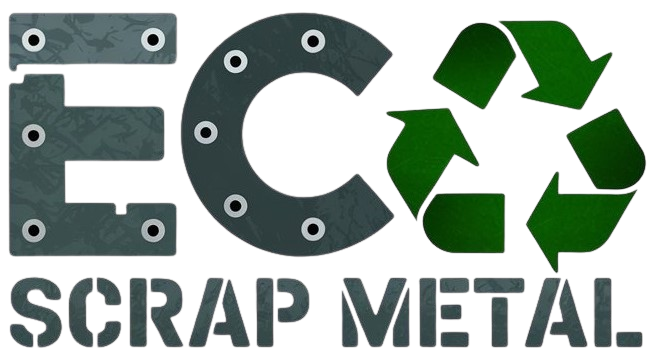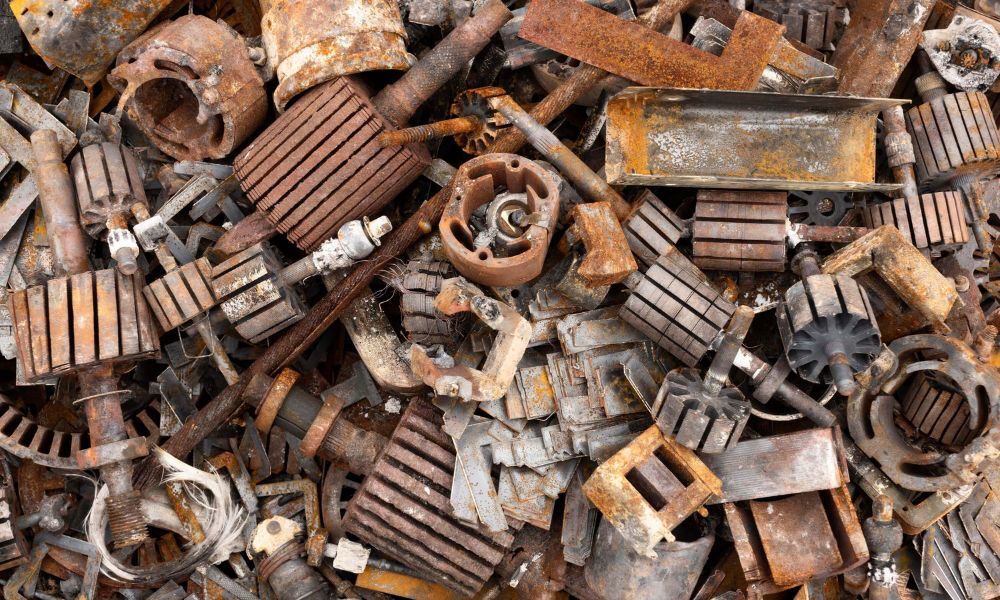Top Reasons Why Scrap Metal is Valuable
Scrap metal is far more than just discarded material — it’s a commodity that holds significant value for businesses, industries, and economies around the world. Whether it’s old cars, construction materials, manufacturing waste, or unwanted appliances, scrap metal can be transformed into a valuable resource. As a company that buys scrap metal, understanding why scrap metal is valuable can help you better navigate the market, offer competitive pricing, and tap into the growing demand for metal materials.
In this blog, we will explore the top reasons why scrap metal is considered valuable, focusing on economic benefits, material demand, and the global marketplace.
1. Metal’s Essential Role in Modern Industry
Metals are indispensable to modern industry, and scrap metal provides a cost-effective way to source materials for production. Metals like steel, copper, aluminum, and brass are used in a variety of sectors, from manufacturing and construction to electronics and automotive. As a result, there is always a constant demand for these materials, which in turn drives the value of scrap metal.
- Construction: Scrap steel is a major component in the construction industry, where it’s used in everything from structural beams to reinforcement bars. As urbanisation continues to grow, demand for construction materials, including recycled metals, is only increasing.
- Automotive: The automotive industry is a heavy consumer of scrap metal. Old vehicles are often dismantled and their metal parts are sold for reuse in manufacturing new cars, trucks, and parts.
- Electronics: Electronic products, including mobile phones, computers, and household appliances, all contain valuable metals such as copper, aluminum, and gold. As technology advances, the need for these metals continues to grow.
The more demand there is for metal in industrial production, the more valuable scrap metal becomes, as it offers an efficient way to meet these needs.
2. Price Fluctuations and Market Demand
Scrap metal is a globally traded commodity, and its value is often determined by market conditions, which can fluctuate based on supply and demand. Key factors that affect scrap metal prices include:
- Global Demand for Metals: When industries experience growth — for example, during periods of economic expansion or increased infrastructure development — the demand for raw materials rises, pushing up the price of scrap metal.
- Availability of Virgin Materials: When extracting metals from natural sources becomes more expensive or difficult, businesses turn to scrap metal as a more affordable alternative, driving up its value.
- Commodity Prices: Scrap metal prices are closely linked to the prices of primary metals, such as copper, aluminum, and steel. For example, when the price of copper rises on global markets, the price of scrap copper also tends to increase.
For a company that buys scrap metal, these market fluctuations represent an opportunity to buy low and sell high. By staying attuned to market trends, you can make strategic decisions to maximise profits while offering competitive prices to sellers.
3. High Value of Non-Ferrous Metals
Scrap metal is divided into two main categories: ferrous (containing iron) and non-ferrous (not containing iron). Non-ferrous metals are generally more valuable than ferrous metals due to their unique properties and high demand in specialised industries.
- Copper: Copper is one of the most valuable metals in the scrap market. It’s widely used in electrical wiring, plumbing, and electronics due to its excellent conductivity. The growing demand for renewable energy systems, such as wind turbines and solar panels, has further increased the demand for copper.
- Aluminum: Lightweight, corrosion-resistant, and versatile, aluminum is widely used in everything from packaging to transportation. The automotive and aerospace industries, in particular, rely heavily on aluminum, which makes scrap aluminum highly valuable.
- Brass and Bronze: Brass, an alloy of copper and zinc, and bronze, an alloy of copper and tin, are often used in plumbing, decorative items, and marine applications due to their durability and resistance to corrosion. These non-ferrous alloys can command a premium price in the scrap market.
The high value of non-ferrous metals, particularly copper and aluminum, means that scrap metal companies can pay more for scrap materials that contain these metals, making them a key target for scrap metal buyers.
4. Supply Chain and Resource Security
As the global economy becomes more complex and interconnected, resource security is increasingly important. Relying on scrap metal for production helps reduce dependency on raw material imports, which can be affected by geopolitical factors or trade restrictions. Scrap metal provides a more secure and stable source of raw materials for industries, ensuring that production runs smoothly even during periods of resource scarcity.
- Reduced Dependency on Mining: Mining for raw metals is both costly and environmentally taxing. Scrap metal serves as an alternative, reducing the need to extract new materials from the earth. This is especially important for countries with limited access to primary metal sources.
- Stable Supply: Since scrap metal is collected from various sources and can be reused multiple times, it provides a stable supply of metals, which is essential for industries that rely on continuous production cycles.
By investing in scrap metal, businesses help ensure a stable supply of these essential materials, reducing risks associated with the fluctuating availability of raw metals.
5. Economic Value and Revenue Generation
Scrap metal has intrinsic economic value, both for the companies that buy it and the industries that process it. By purchasing scrap metal from individuals, businesses, or municipalities, scrap buyers can generate substantial revenue from the resale or further processing of these materials.
- Cost-Effective Manufacturing: For manufacturers, buying scrap metal as a raw material is often cheaper than purchasing new metals. Recycling metal into new products generally involves lower costs and less energy use than extracting and refining raw metals.
- Profit Margin: Scrap metal buyers can often sell processed scrap at a higher price than the purchase cost. The difference between the buying price and the selling price creates a significant profit margin.
- Scalability: As demand for scrap metal continues to grow, businesses that specialise in buying and reselling scrap metal can scale their operations to take advantage of the expanding market.
The revenue potential in scrap metal is substantial, making it a highly profitable industry. By purchasing scrap metal, companies can secure valuable materials while contributing to the economy and creating jobs.
6. Contribution to a Thriving Global Market
The global scrap metal market is vast, with trade happening on an international scale. Major scrap-exporting countries like the United States, Japan, and Germany contribute millions of tons of scrap metal to the global market, and this trade has expanded in recent years.
- Global Supply Chains: Companies that buy and sell scrap metal contribute to global supply chains by ensuring that manufacturers around the world have access to the raw materials they need to produce goods.
- Economic Growth: The scrap metal industry provides an important source of income and employment opportunities in many countries. Scrap metal trading also supports jobs in transportation, sorting, and processing, benefiting local economies.
By tapping into this global market, companies can increase their buying power and expand their reach, taking advantage of international price fluctuations and building relationships with suppliers and buyers around the world.
7. Diversified Metal Types and Market Opportunities
Scrap metal comes in a wide variety of forms, each with its own unique value. This diversity creates multiple opportunities for scrap metal buyers to source materials from different sectors, including:
- Old Vehicles: End-of-life vehicles (ELVs) contain a variety of metals that can be salvaged for reuse. Scrap car buyers can sell valuable parts, such as catalytic converters (which contain precious metals), engines, and transmissions.
- Industrial Scrap: Manufacturing facilities and construction sites often generate metal waste, including old pipes, beams, and machinery. By purchasing this scrap, scrap metal buyers can tap into the growing demand for metals in industries like construction and manufacturing.
- Household Appliances: Refrigerators, washing machines, and other appliances are a rich source of scrap metal. The steel, copper, and aluminum found in appliances can be collected and resold for significant profit.
By diversifying the types of scrap metal purchased, companies can maximise their revenue streams and offer valuable services to a wide range of clients.
Sell Your Scrap Metal to ECO Scrap Metal Today!
Scrap metal is a valuable resource that plays a crucial role in modern industry. Whether you have copper, aluminum, steel, or any other type of metal, ECO Scrap Metal is here to offer competitive prices, excellent service, and convenient solutions for all your scrap metal needs.
When you’re ready to sell your scrap metal, contact us for fast, reliable service and secure payment. We make the process simple, transparent, and profitable, ensuring that you get the best value for your unwanted materials. Let us help you turn your scrap into cash today!
Conclusion
Scrap metal is an essential and highly valuable resource in today’s economy. Its demand across industries, its fluctuating market prices, and its potential for profit make it a key commodity for companies that buy and sell scrap. From providing critical materials for manufacturing to ensuring resource security in a globalised market, scrap metal plays a vital role in modern industry.
For businesses that purchase scrap metal, understanding the value and demand for different metals, the market dynamics, and the economic opportunities available can help maximise profits and establish a solid position in the scrap metal industry. By capitalising on the growing demand for valuable scrap, companies can thrive in this ever-evolving market.

